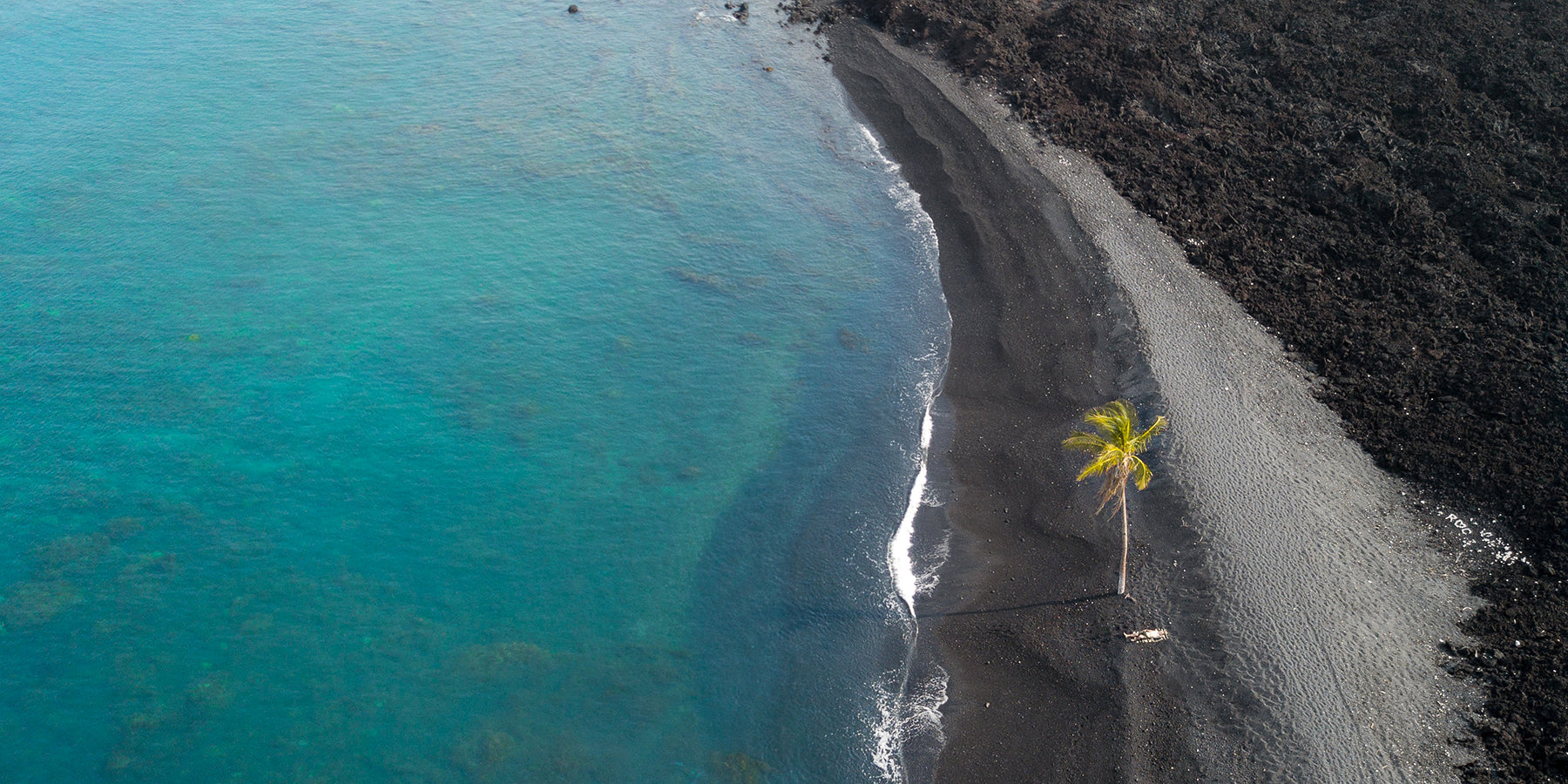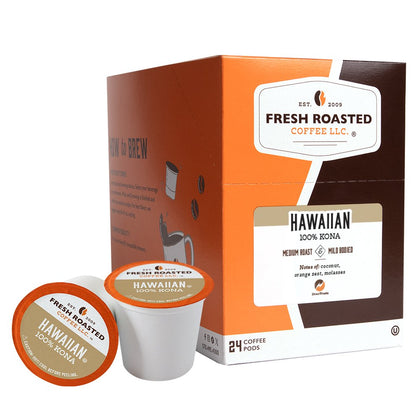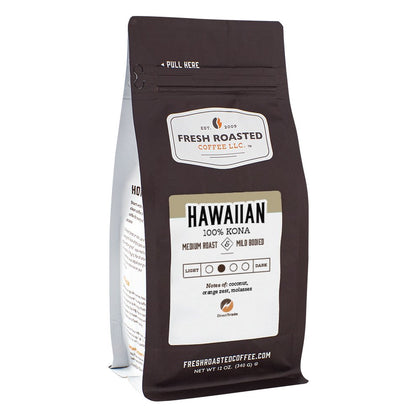Introducing Direct Trade USDA Organic Hawaiian 100% Kona Coffee

At Fresh Roasted Coffee LLC, we are always on the lookout for Hawaiian coffee. Coffee consumers constantly ask where they can find the best coffees from this piece of paradise. Grocery stores boast Hawaiian coffee blends, but rarely offer anything of substance. These Hawaiian coffee blends may contain only a small dusting of true Hawaiian coffee and are marketed with tropical flavors like coconut. We weren't about to aim that low.
Recently, we were able to form a working relationship and friendship with Hala Tree Coffee, an organic Kona coffee farm in Captain Cook, Hawaii. After several taste tests and conversations with the owners, we soon realized that we couldn't pass up on this amazing organic opportunity.
We are excited to announce the release of our Direct Trade USDA Organic Hawaiian 100% Kona Coffee.
What makes Kona coffee so unique?
You might already have guessed the unique microclimate of Kona, where Hawaiian sunshine, warm and rainy afternoons, little wind, and clear, mild nights contribute to an ideal climate for coffee. This unique climate, paired with mineral-dense, volcanic soil from the Hualalai and Mauna Loa volcanoes makes the island of Kona perfect for favorable coffee growing conditions.
What makes Hala Tree Kona Coffee so different?
Love leads to quality. Hala Tree Coffee produces USDA organically grown Kona coffee beans, meaning no pesticides or chemicals are used at any stage of the coffee process. Hala Tree's passion for organically farmed coffee has resulted in award-winning 100% pure Kona coffee that, when combined with Fresh Roasted Coffee's unique and eco-friendly roasting technology, will not disappoint.
The Journey of Our Organic Kona Coffee

-
Pruning
Pruning season begins between January and February - old branches are cut from the Kona trees to make room for new coffee-producing branches. This keeps the farm looking neat and tidy and also makes the upcoming year's harvesting process more manageable.
-
Clipping
April through June is clipping season. This is the most important step of the coffee production process, as it is vital to the health of the new plant sprouts, which will last for the next three years. New sprouts are carefully clipped, and only a few need to be kept as they turn into the new cherry-producing branches.
-
Picking
Usually September through December, it is time for coffee picking! When the coffee cherries are turning red, they are ready to be harvested. In Kona, coffee is picked three to four times during picking season to ensure the cherries are harvested at the perfect time and redness, not when they are brown or green.
-
Pulping
After the Kona cherries are picked, Hala Tree Coffee keeps the ball rolling and processes their cherries the same day to ensure freshness. The cherries are pulped (the Kona bean or seed is removed from the fruity flesh), and then prepped for fermentation.
-
Fermentation
When the Kona beans are removed from the coffee fruit, they are covered in a sticky coating. Usually, the beans are soaked overnight to ferment and then rinsed by hand to break down the mucilage layer so they can dry properly. Modern machines can also be used to wash and ferment the coffee beans, and many farms choose both methods depending on yield. These machines known as demucilagers are large bean-washing machines that help save time.
-
Drying
Once the beans are sparkly clean, they are ready to be dried. The ideal moisture level of the beans is 11%. At this level, green beans can be stored for up to two years. It can take a few weeks for the beans to dry, as they are left out in the sun on flat platforms.
-
Hulling
This is the final step Hala Tree takes before the coffee is shipped to us to be roasted. The dry, papery layer of skin called "parchment" is removed from the beans to avoid a burnt flavor during the roasting process. Once hulled, the green Kona coffee beans are packaged and shipped to us here in Selinsgrove, Pennsylvania, where we then roast them to perfection.
-
Roasting
We got it from here! Thanks, Hala Tree, for such an amazing product and story! At our facility, the green Kona coffee beans are always roasted per order using our eco-friendly Loring Smart Roaster. Our roasting process creates an even, consistent, and perfect medium roast for our mild-bodied Hawaiian 100% Kona coffee - bringing out the rich, cinnamon, and honeyed toast cupping notes that create an organically rich and delicious cup of Kona coffee you must try!
If you're interested in tasting this amazing new Organic Kona coffee, we offer various sizes of whole bean and ground coffee bags as well as K-Cup-compatible products.



3 Comments
I would like to buy some of this Kona in whole bean but I only see it offered in k-cup. Do you still offer it in whole bean?
When will the Organic Kona Whole Beans be available for purchase?
I would like more info on your product and how to order it, quanities and pricing.
Leave a comment